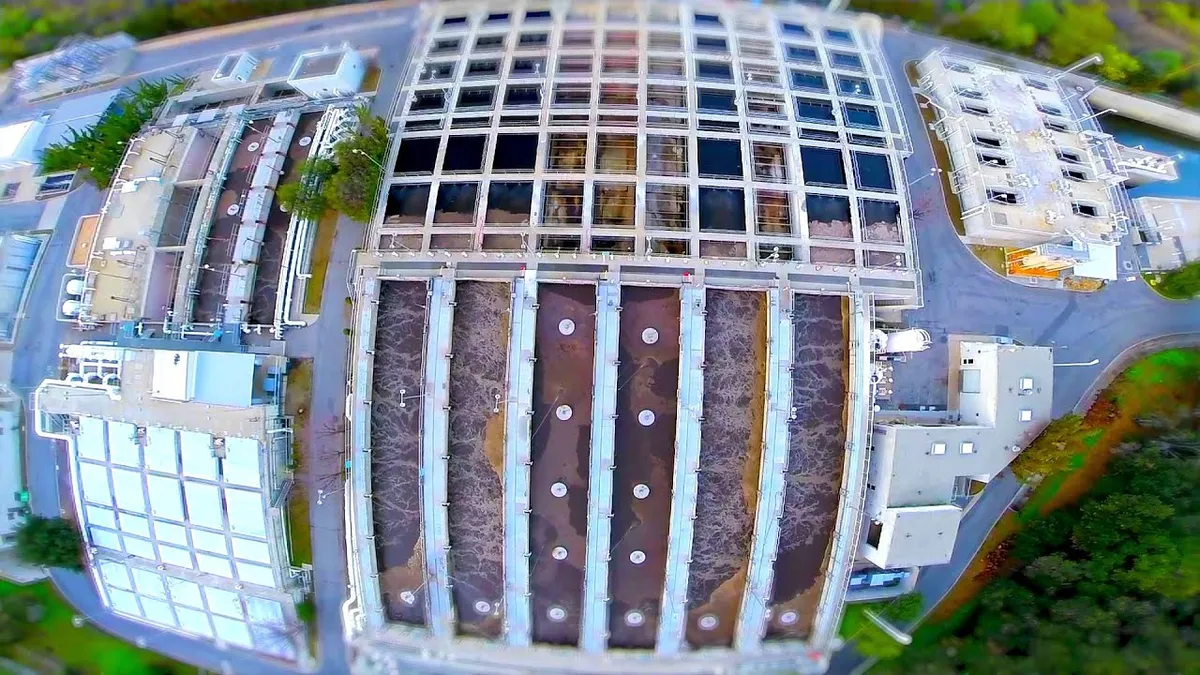Dive Brief:
- The U.S. Department of Energy's Bioenergy Technologies Office and Vehicle Technologies Office are funding nine projects that convert organic waste into transportation fuels, the agency announced this week. The projects will recapture the energy from food waste, dairy cow manure and municipal wastewater sludge and solids.
- The grants are meant to help projects through the initial feasibility study and design phases so the projects can advance. Later funding could help bring projects to the construction and operation phases.
- The funding agreements are part of a $17.5 million Waste Analysis and Strategies for Transportation End-Uses program announced by DOE last year. The program is expected to fund up to 14 projects.
Dive Insight:
The transportation fuels market has become a lucrative outlet for projects that seek to capture and beneficially reuse waste. Those projects often take gas from dairy cow manure or food waste to convert into renewable natural gas.
The projects funded by DOE incorporate a wide range of technologies and outcomes.
DOE selected the Las Virgenes Municipal Water District, located in Calabasas, California, to receive $1.6 million, the most of any recipient in this week's announcement. The Los Angeles-area pilot project proposes to convert one to two tons of biosolids per day into 100 kilograms per day of fuel cell-grade hydrogen. The project, which uses technology from Hago Energetics Benefit Corp., is in the design work and experimental validation phase.
The project attempts to address California's SB 1383 requirements and the growing questions about proper biosolids disposal, according to a DOE summary. Two other selected projects are also in California.
In the city of Reedley, near Fresno, applicants want to create an anaerobic digestion facility that uses a continuous stirred tank reactor, which could take in a wide range of agricultural waste and convert it into transportation fuels. The other California project, led by the California Dairy Research Foundation, will assess the feasibility of converting methane from dairy manure into hydrogen.
Other funding recipients include:
- Houston Advanced Research Center: The nonprofit research consortium will conduct feasibility studies for 25 candidate wastewater treatment sites in Texas' Rio Grande Valley region to identify their ability to produce transportation fuels.
- Montgomery County, Maryland: The county will examine the conversion of wastewater residuals to hydrogen that can be used to fuel a regional bus fleet.
- New Jersey Clean Cities Coalition: The project will perform a waste analysis across 44 higher education campuses to find opportunities to develop waste-derived fuels or construct food waste recycling facilities.
- GTI Energy: The energy firm will analyze the feasibility of generating hydrogen at the Fair Oaks dairy in Indiana, a dairy cooperative in Wisconsin and a truck stop in Iowa.
- Ecology Action Center: The nonprofit environmental agency based in Normal, Illinois, will perform a waste audit to evaluate the feasibility of an anaerobic digestion system that would co-digest waste and convert it to RNG.
- Berryville, Arkansas: The city will take initial steps to create primary and secondary materials recovery facilities, with plans to separate organics for conversion to transportation fuels.











